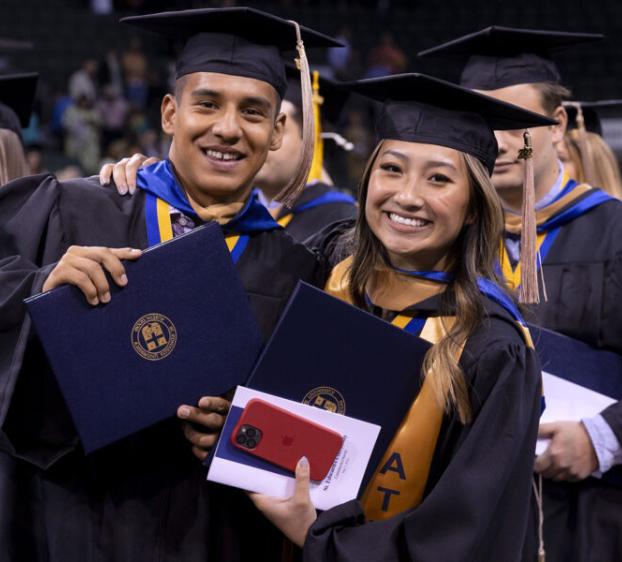Discover Diverse Career Options Through Reading and Writing
Good readers make the best writers — and we’ll teach you to apply your comprehension skills across the board.
Why earn your English Literature degree at St. Edward’s?
English Literature majors have ample opportunities to attend live theatre and meet visiting writers, contribute to student publications, study abroad, and intern with an organization connected to publishing, literacy, education or communication.
Internships
Intern in a variety of settings where they use their analytical and communication skills and gain professional experience. Students have recently interned at the National Alliance on Mental Illness; Badgerdog children’s and adult creative writing workshops; Literati Books, a curated books-of-the-month club for kids; Women’s Storybook Project of Texas, whose mission is to connect children with their incarcerated mothers through the joy of literature; Annie’s List; and the Harry Ransom Center.
Study Abroad
Take courses in creative writing, literature and literary studies at St. Edward’s partner universities including The National University of Ireland in Galway, Queen Margaret University in Edinburgh, Scotland, and The University of Roehampton in London.
Research
You’ll have the opportunity to conduct research on topics that interest you and present it at the Symposium on Undergraduate Research and Creative Expression, on campus, or at professional conferences. Recent presentations have included Intersections between the political thought of John Milton and Nicolo Machiavelli and How Mary Shelley repurposed the poetry of John Milton to build a feminist ethical vision in the nineteenth century.
On the Hilltop
Student Organizations are a great avenue for meeting students with similar interests and adding to your portfolio. Take up the opportunity to edit, write, design and publish for one of our four student-run publications. The Sorin Oak Review is a literary magazine that showcases poetry, prose and artwork of students. The academic journal, Arete, publishes student research, nonfiction essays and commentary and Hilltop Views is the weekly students newspaper, published in both print and online. Share your witty thoughts with B. Hooved, the student humor journal.

Reap the Rewards of Austin
Home to the Texas Book Festival and the renowned Austin Central Library, your courses will draw on the resources of Austin’s cultural and arts scene to help literature come to life. In your Shakespeare class, you’ll attend at least one live performance and interact with the actors. In Milton, you’ll visit the Harry Ransom Center reading room to examine the archives of Milton’s works.
What will you learn?
Learn to analyze literature alongside professors who share your passion for the printed page and develop a global mindset by studying a diverse range of authors from different cultures and communities.
Students in the English Literature major choose one of three specializations, while building a broad foundation in American and British literature from a variety of periods.
- The General Specialization offers literature electives that appeal to more specific interests like Native American Literature, Literature of Crime and Punishment, Uncanny Literature, and Science and Fiction.
- The Creative Writing Specialization guides students through Poetry and Fiction workshops, Writing for Stage and Screen, Fantastical Fiction and Creative Nonfiction.
- The Language Arts Teaching Specialization provides students with writing and linguistics coursework to fulfill teacher education requirements in Texas.
What skills will you gain?
Upon completing the English Literature program, you’ll be ready to…
- Analyze American and British literature across multiple time periods.
- Confidently meet teaching-education requirements to teach English in Texas.
- Write a screenplay with new worlds and developed characters.
- Use critical thinking to understand elaborate texts for various audiences and purposes.
- Creatively and effectively communicate complex messages for appropriate audiences.
- Implement research methods to successfully construct and introduce an idea or argument.
What do our graduates do?
Acting majors go on to a variety of careers and graduate schools from St. Edward’s. Here’s a sample:
- English Teaching Assistant in the Fulbright U.S. Student Program
- Youth services librarian at Matheson Memorial Library
- Graduate student at The University of Texas at Austin
- Student at the Columbia University Publishing Institute in Oxford, United Kingdom
- Graduate student at Brandeis University
- Fellow at the Library of Congress
Explore Details About the BA in English Literature
Major Requirements: The Bachelor of Arts with a major in English Literature requires 42 hours of core coursework, providing a strong foundation in literary history and analysis and many elective options. Students choose additional electives from one of three specializations: General Literature, Creative Writing, and Language Arts for Teachers.
General Education Requirements: The English literature degree requires an average of 38-44 hours of general education courses that students complete over four years in addition to their major courses and electives.
View the full degree plan for our English Literature major.
See the most current Undergraduate Bulletin for the complete list of courses required and course descriptions for this major.
1. English Literature - General
Students in this specialization gain a broad foundation in American and British literature from a variety of periods, and also take literature electives that appeal to more specific interests.
Major Requirements: 42 hours of English Literature major courses are required.
View the full degree plan for the English Literature - General major (PDF).
A few examples of electives in the General specialization have included:
- Native American Literature
- Literature of Crime and Punishment
- Science and Fiction
- "Radicals and Revolutionaries" in Literature
- Uncanny Literature
- Literature of Love
See the most current Undergraduate Bulletin for the complete list of courses required and course descriptions for this specialization.
2. English Literature with a Creative Writing Specialization
The Creative Writing specialization also offers a broad foundation in American and British literature from multiple periods, but allows students to take electives in creative writing.
Major Requirements: 42 hours of English Literature major courses, 9 hours of which are concentrated on creative writing.
View the full degree plan for English Literature with a Creative Writing Specialization (PDF).
A few examples of Creative Writing electives within the Literature major have included:
- Poetry and Fiction workshops
- Writing for Stage and Screen
- Fantastical Fiction
- Creative Nonfiction
See the most current Undergraduate Bulletin for the complete list of courses required and course descriptions for this specialization.
3. English Literature with a Language Arts Teaching Specialization
The Language Arts Teaching specialization offers a broad foundation in American and British literature from multiple periods but provides students with writing and linguistics coursework to fulfill teacher education requirements in Texas.
Major Requirements: 42 hours of English Literature major courses, 12 hours of which are concentrated on writing and linguistics.
The required writing and linguistics courses are these:
- Grammar and Style
- Introduction to Creative Writing
- Analyzing Rhetoric
- Workplace Writing
View the full degree plan for English Literature with a Language Arts Teaching Specialization (PDF).
See the most current Undergraduate Bulletin for the complete list of courses required and course descriptions for this specialization.
The English Literature minor makes an excellent pairing with nearly any other major. Recently, for instance, students have paired the English Literature minor with majors in Video Game Development, Criminal Justice, Biology, Communication, Business, and many others. Talk to any of our English Literature professors to figure out how to make this minor work for you.
Required Courses
Students who wish to earn an English Literature minor must take the following coursework, totaling 18 hours.
Introduction to Literary Studies: ENGL 2300 – 3 hours
Select three hours from the following courses.
- American Literature I: ENGL 2301 – 3 hours
- American Literature II: ENGL 2302 – 3 hours
- British Literature I: ENGL 2322 – 3 hours
- British Literature II: ENGL 2323 – 3 hours
Select three additional hours from any 2000-level ENGL course.
- English Literature Elective: ENGL 2300 – 3 hours
Select nine additional upper-division hours of elective courses.
- English Literature Elective (three times): ENGL 3300+ – 9 hours
At St. Edward’s, our faculty are outstanding scholars, thought leaders, teachers and mentors who bring energy and enthusiasm to our vibrant learning community. They take pride in getting to know you, helping you achieve your goals and celebrating your successes.
View a list of our faculty members and their contact information on the Department of English webpage.

Earn Two Degrees in Five Years
With our Accelerated Graduate Pathways, you can complete your BA English Literature and one of six master’s degrees in as little as five years, saving time and money. See details and requirements.
- English Literature (Creative Writing) to Master of Business Administration (MBA)
- English Literature (General Specialization) to Master of Business Administration (MBA)
- English Literature (Creative Writing) to MS in Digital Marketing and Analytics
- English Literature (General Specialization) to MS in Digital Marketing and Analytics
- English Literature (Creative Writing) to MS in Organizational Leadership
- English Literature (General Specialization) to MS in Organizational Leadership
Success coaches and academic advisors guide you through undergraduate and graduate courses to maximize benefits.
